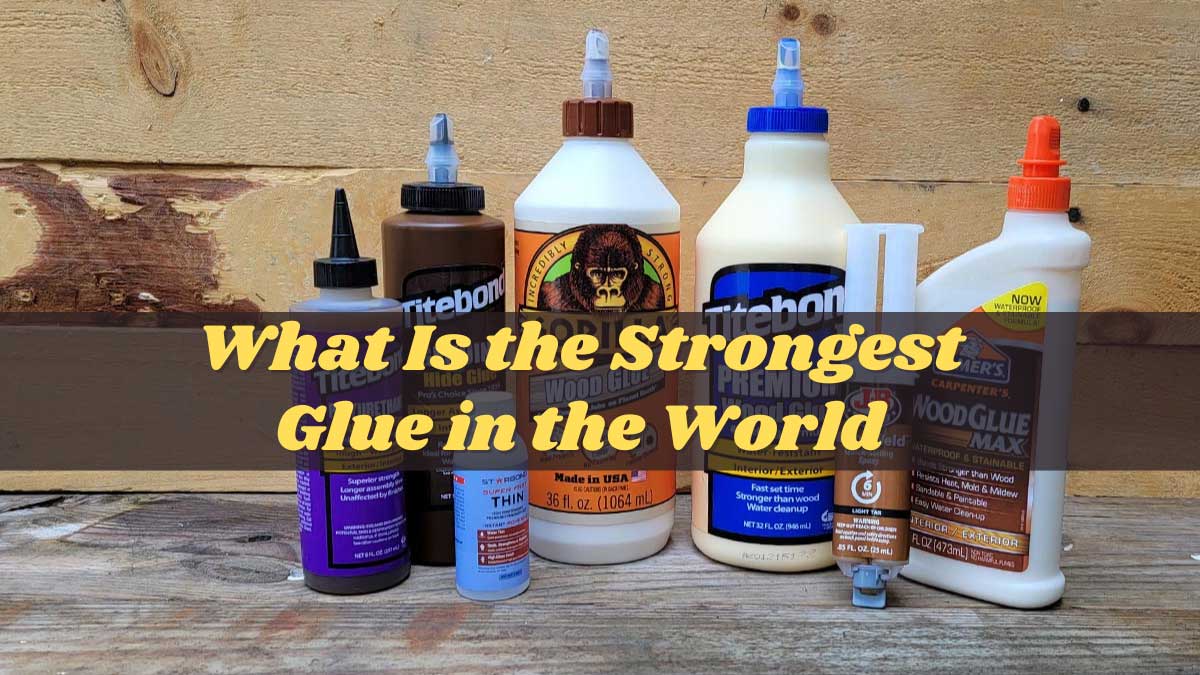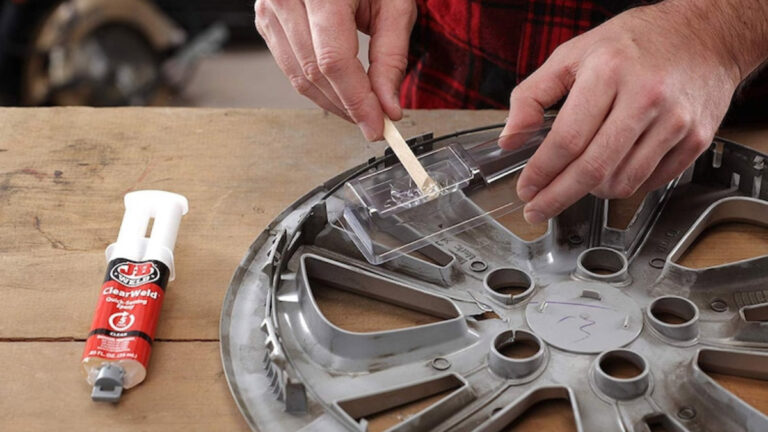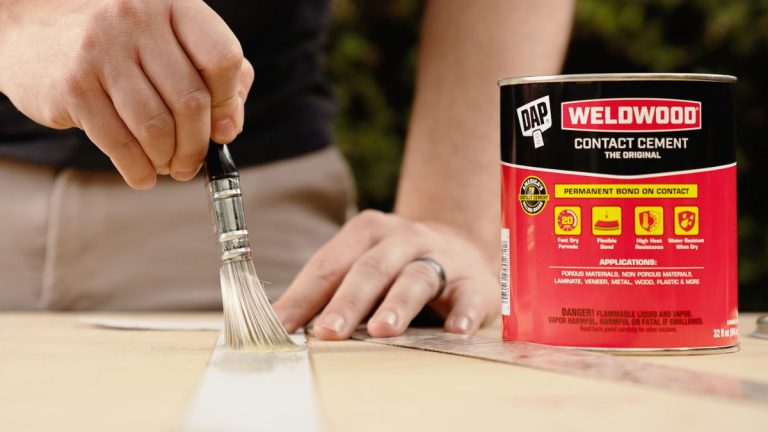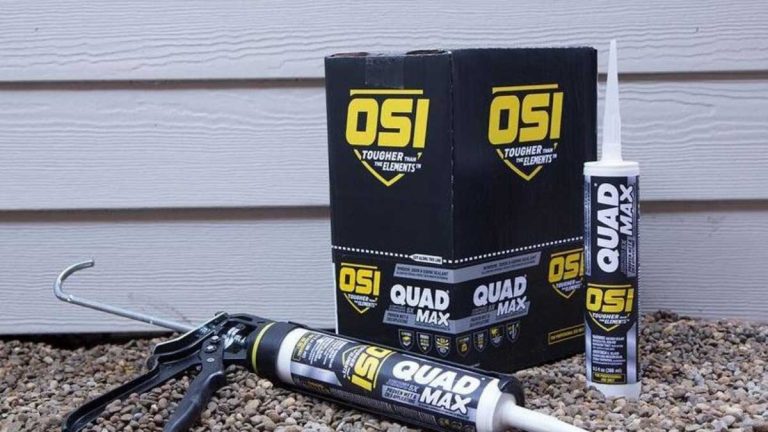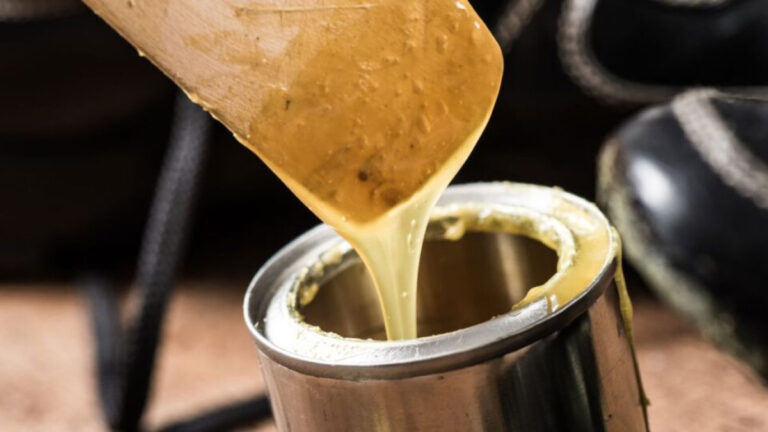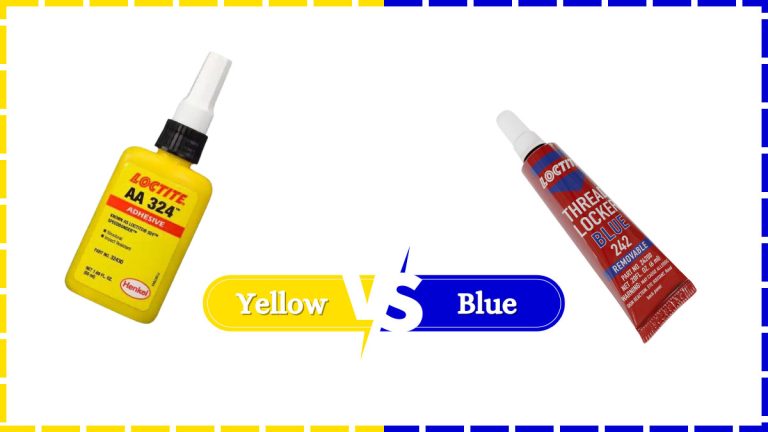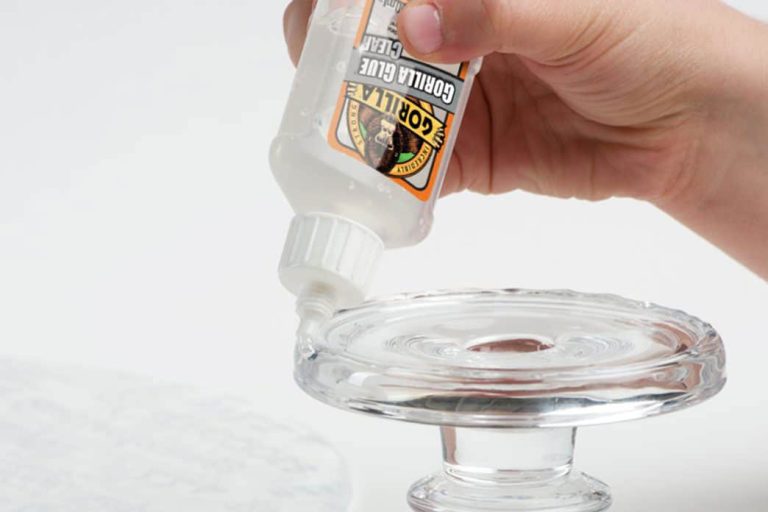What Is the Strongest Glue in the World: Record-Breaking Adhesives
Ever found yourself in a sticky situation wondering which glue can hold just about anything together? Whether you’re repairing a broken vase or tackling a DIY project, knowing the strongest glue in the world can save you time and frustration. The quest for the ultimate adhesive isn’t just for hobbyists; industries from aerospace to construction rely on these powerful bonding agents.
Key Takeaways
- Understanding Adhesive Strengths: Different adhesives like epoxies, acrylics, cyanoacrylates, and anaerobic adhesives each have unique strengths and applications.
- Record-Breaking Adhesives: DELO MONOPOX holds the Guinness World Record for lifting 17.5 tons with just 3 grams of adhesive, demonstrating exceptional strength for industrial applications.
- Application-Specific Glues: Different materials require specific adhesives for optimal performance, such as polyurethane for wood, epoxy for metal, silicone for glass, and cyanoacrylate for plastics.
- Choosing the Right Glue: Selecting the strongest glue depends on factors like material compatibility, drying time, and the intended use, whether for household repairs or industrial applications.
Types of Strong Adhesives
Discovering the strongest adhesive for various applications, from household repairs to industrial tasks, can save time and reduce frustration. Here’s an overview of the most powerful glues in the world.
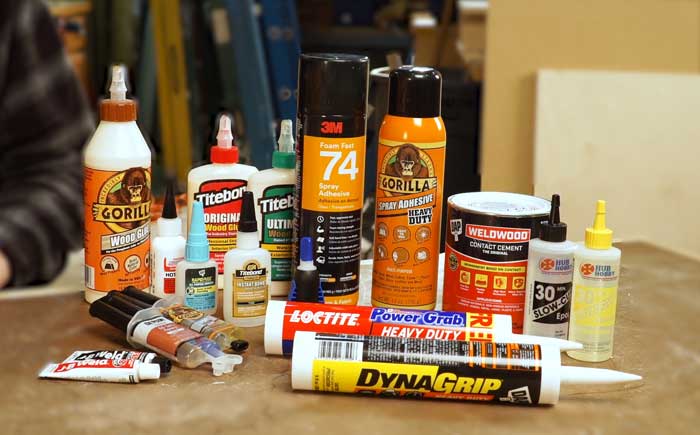
Epoxies
Epoxies are renowned for their immense strength and versatility. They perform exceptionally well in demanding environments.
Characteristics:
- High Strength: Offers durability and fatigue resistance under heavy loads.
- Chemical Resistance: Withstands various chemicals, including solvents and acids.
- Heat Resistance: Maintains integrity in high-temperature conditions.
Applications:
- Automotive: Used for structural bonding and repairs.
- Electronics: Provides insulation and mechanical support.
- Construction: Bonds materials like metal, wood, and concrete.
Acrylic Adhesives
Acrylic adhesives are strong and versatile, suitable for diverse applications where a robust bond is essential.
Characteristics:
- Fast Curing: Quickly sets, reducing assembly time.
- Environmental Resistance: Resists UV light, weather elements, and extreme temperatures.
- Flexibility: Provides a durable bond that can withstand movement.
Applications:
- Signage: Bonds materials in outdoor signs exposed to varying weather.
- Aerospace: Used in aircraft assemblies for its lightweight and strength.
- Medical Devices: Bonds components while ensuring biocompatibility.
Cyanoacrylate Adhesives
Commonly known as super glue, cyanoacrylate adhesives offer rapid bonding capabilities ideal for quick fixes.
Characteristics:
- Instant Bonding: Forms a strong bond within seconds.
- Versatile: Adheres to a wide range of materials, including plastics, metals, and ceramics.
- Low Shear Strength: Better suited for applications with less mechanical stress.
Applications:
- Household Repairs: Quick fixes for broken items.
- Model Building: Perfect for assembly of small parts.
- Medical Use: Sometimes used for suture-free wound closures.
Anaerobic Adhesives
Anaerobic adhesives cure in the absence of air, providing a robust bond for fastener locking and sealing applications.
Characteristics:
- Sealing Capability: Prevents leaks in hydraulic and pneumatic systems.
- Metal Bonding: Forms strong bonds between mated metal surfaces.
- Chemical Resistance: Resists solvents and oils.
Applications:
- Mechanical Engineering: Locks and seals bolts, nuts, and threaded fasteners.
- Automotive: Secures bearings, gaskets, and gears.
- Industrial Equipment: Prevents loosening of components under heavy vibration.
Summary
By understanding the specific strengths and applications of each type of adhesive, you can select the most suitable one for your needs, ensuring optimal performance and reliability in your tasks.
Record-Breaking Strongest Adhesives
In the world of industrial adhesives, achieving exceptional strength is paramount. The title of the strongest glue in the world is currently held by DELO MONOPOX, a remarkable adhesive with record-breaking capabilities.
The 17.5 Ton Record (2019)
DELO MONOPOX set a Guinness World Record in 2019 by lifting 17.5 tons with just 3 grams of adhesive. Here’s a closer look at the specifics:
- Weight Lifted: 17.5 tons
- Adhesive Quantity: 3 grams
- Bonding Area: 39.8 cm² (approximately the size of a soft drink can)
- Height: 1 meter above the ground
- Duration: Weight hung for 1 hour
- Adhesive Type: DELO MONOPOX HT2860
Key Terms
- DELO MONOPOX: A high-temperature-resistant epoxy resin that forms a dense network during heat curing.
- Epoxy Resin: A type of polymer known for its strong adhesive properties and resistance to heat and chemicals.
- Bonding Area: The surface area where the adhesive is applied.
This record exemplifies the exceptional strength and reliability of DELO’s adhesive solutions, which are ideal for demanding industrial applications.
Past Records
-
2013 Record
- Weight: 16.3 tons
- Material: High-performance plastic (PEEK)
- Method: Melted and cooled between steel cylinders
-
2012 Record
- Weight: 10 tons
Summary of Record Data
| Year | Weight (tons) | Material/Adhesive | Bonding Area |
|---|---|---|---|
| 2019 | 17.5 | DELO MONOPOX HT2860 | 39.8 cm² |
| 2013 | 16.3 | High-performance plastic (PEEK) | Not Specified |
| 2012 | 10 | Not Specified | Not Specified |
Application Insights
Understanding these records helps in recognizing the potential of industrial adhesives in various applications:
- Aerospace: High strength and reliability in extreme conditions.
- Construction: Ensuring durable and long-lasting bonds.
- Electronics: Providing secure components in intricate assemblies.
These insights can guide you in selecting suitable adhesives for your specific industrial needs, ensuring optimal performance and reliability.
Applications of Strong Adhesives
Strong adhesives are vital in many industries, from construction to automotive and consumer goods. They provide reliable bonds between various materials, ensuring durability and stability.
For Wood
Polyurethane Adhesives excel in wood bonding due to their strong mechanical properties and moisture resistance. When working with wood, you might consider these benefits:
- Strong Mechanical Properties: Ensures the bond holds even under stress.
- Moisture Resistance: Prevents weakening of the bond in humid conditions.
- Gap-Filling Ability: Ideal for uneven surfaces.
Examples include Titebond III and Gorilla Glue.
For Metal
Epoxy Adhesives are often used in metal bonding. Here’s why:
- High Tensile Strength: Maintains bond integrity under heavy loads.
- Chemical Resistance: Resists degradation from oils and solvents.
- Temperature Resistance: Performs well in extreme temperatures.
Notable products are J-B Weld and Loctite Epoxy Metal/Concrete.
For Glass
Silicone Adhesives are preferred for glass due to their flexibility and clarity:
- UV Resistance: Doesn’t yellow over time.
- Flexibility: Absorbs vibrations without cracking.
- Waterproofing: Ideal for aquariums and windows.
Examples include GE Silicone II and Dow Corning 794.
For Plastic
Cyanoacrylate Adhesives, known as super glue, are effective for plastics:
- Fast Curing: Bonds within seconds.
- High Shear Strength: Handles significant shear forces.
- Versatility: Works on various plastics.
Renowned types include Gorilla Super Glue and Loctite Super Glue.
These adhesives ensure strong and reliable bonds across various materials, making them indispensable in both industrial and everyday applications.
Choosing the Right Glue for Your Needs
Selecting the strongest glue for your task depends on several factors. You need to consider the material you’re bonding, the required drying time, and the specific application. This section will guide you through these vital aspects.
Packaging
Types of Packaging: Glues come in various forms, including tubes, bottles, cartridges, and sticks. Each type affects ease of use and storage.
Considerations:
- Tubes: Ideal for small repairs. They offer precise application.
- Bottles: Suitable for medium tasks. They provide controlled dispensing.
- Cartridges: Best for large projects. They use dispensers for consistent flow.
- Sticks: Commonly used in hot glue guns. They are perfect for crafts and minor repairs.
Drying Time
Drying Time Factors: Different adhesives have varying drying and curing times, crucial for project planning.
Types of Drying Times:
- Fast-Drying (within seconds): Cyanoacrylate adhesives like Gorilla Super Glue.
- Moderate-Drying (few minutes to hours): Epoxies such as Loctite Epoxy Instant Mix.
- Slow-Drying (hours to days): PVA glues like Elmer’s Carpenter’s Wood Glue.
Application Timing: If you need quick fixes, fast-drying adhesives are better. For structural repairs needing precise positioning, opt for moderate or slow-drying options.
Intended Use
Material Application: Different glues work best for specific materials. Ensure compatibility to achieve optimal results.
Ideal Glues for Materials:
- Wood: Polyurethane adhesive (e.g., Titebond III) for moisture resistance.
- Metal: Epoxy (e.g., J-B Weld) for strength and durability.
- Glass: Silicone adhesive (e.g., GE Silicone II) for flexibility and UV resistance.
- Plastic: Cyanoacrylate adhesive (e.g., Loctite Super Glue) for versatility and quick bonding.
Industrial vs. Household:
- Industrial: Choose specialized adhesives like DELO MONOPOX for high-stress environments (automotive, aerospace).
- Household: Use versatile, user-friendly options like PVA or super glues for everyday repairs.
| Adhesive Type | Applications | Packaging | Drying Time |
|---|---|---|---|
| Polyurethane Adhesive | Wood, outdoor use | Bottles, cartridges | Slow (hours to days) |
| Epoxy Adhesive | Metal, concrete, heavy-duty | Tubes, bottles | Moderate (minutes to hours) |
| Silicone Adhesive | Glass, aquarium repairs | Tubes, cartridges | Slow (hours to days) |
| Cyanoacrylate Adhesive | Plastic, general repairs | Tubes, bottles | Fast (within seconds) |
Choosing the right glue involves understanding packaging types, drying times, and intended uses. Consider these factors to ensure a successful bonding experience tailored to your specific needs.
Conclusion
Understanding the strongest glue in the world can significantly elevate your DIY projects and professional endeavors. Whether you’re working with wood, metal, glass, or plastic, selecting the right adhesive ensures durability and efficiency. DELO MONOPOX’s record-breaking performance showcases the incredible potential of modern adhesives, proving their indispensable role in various industries. By considering factors like material compatibility, drying time, and application, you can make informed decisions that lead to optimal results. For both industrial and everyday uses, the right glue can be a game-changer, providing the strength and reliability you need.
Frequently Asked Questions
What weakens Gorilla Glue?
Gorilla glue (original brown formula) can be weakened or dissolved using Lacquer thinner or Xylene. Weaker solvents are generally ineffective.
What is the strongest glue on the market?
The strongest glue available on the market is DELO MONOPOX, known for its exceptional bonding strength.
Is Gorilla Glue permanent?
Yes, Gorilla Glue is designed for permanent repairs. It sets quickly, drying within 10 to 45 seconds, making it ideal for a variety of household projects.
What glue is stronger than a glue gun?
Super glue (cyanoacrylate adhesives) is generally stronger and more versatile compared to hot glue from glue guns.
What is the strongest natural glue in the world?
The strongest natural adhesive is produced by the bacterium Caulobacter crescentus, which creates a highly sticky substance made from sugars like glucose, mannose, and xylose.

